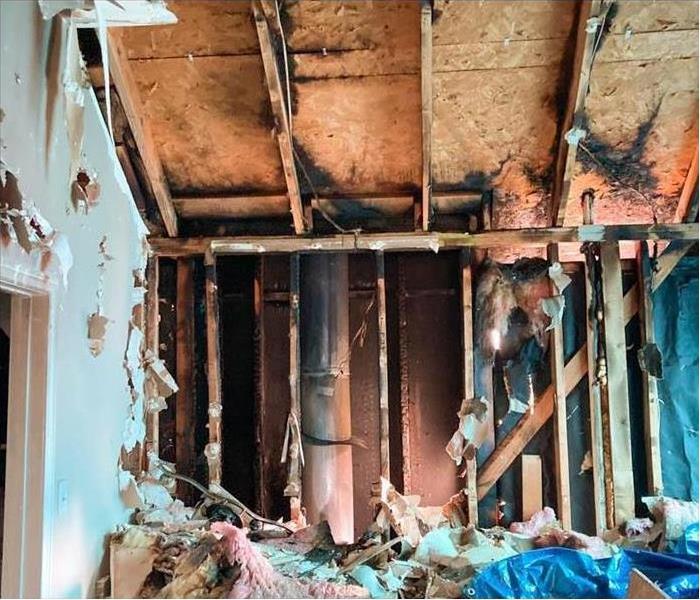Smoke Damage In Your Building
10/8/2022 (Permalink)
Smoke Damage To Your Building
If you are a property owner in Georgetown who has experienced a fire, you are likely aware that there is more than one type of damage that can result. While it's no secret that fires cause extensive physical damage to your building and its contents, they can also cause less visible but equally destructive smoke damage. This article will explain how smoke damage occurs, why it happens, and how to spot if it has happened on your property.
Smoke Causes Damage
Smoke damage can be a serious issue that you may not be aware of until after the fire has been extinguished. The smoke from a fire can cause damage to your property that isn't apparent until the smoke starts clearing and you begin cleaning up. However, even if there is no visible evidence of fire-related damage, your insurance policy may cover repairs for smoke damage.
In short: Smoke damage doesn't necessarily mean fire-related physical property damages; it could also mean exposure within areas affected by soot accumulation due to excessive heat/smoke levels caused by fires burning nearby which leads us nicely into our next point about what kind
Smoke Damage and Your Insurance
Smoke can cause serious problems for your property, which can lead to costly repairs or replacement of items. In some cases, even if there was no physical damage to an item—for example, if it wasn't charred or melted—it could still have been affected by smoke-related chemicals that would necessitate replacing it anyway.
If a fire breaks out in your building and you have smoke damage as a result, it is important to know that the damage is covered by the same policy that covers fire damage. That's because even though smoke damage may not be visible, the materials are still being damaged.
This type of coverage is referred to as "secondary coverage" because it covers any damages sustained by your home or business that are not directly related to the original cause (the main event) of loss on your claim. As an example of secondary coverage, if someone driving down the street runs into a tree stump and smashes their car's right front fender, they would have collision coverage under their auto policy; however, if they hit a tree stump while backing out of their driveway without hitting anything else along with their car's front bumper falling off from impact with said tree stump—that would fall under secondary coverage since it wasn't caused by another vehicle but rather just something unfortunate happening in their own driveway!



 24/7 Emergency Service
24/7 Emergency Service
